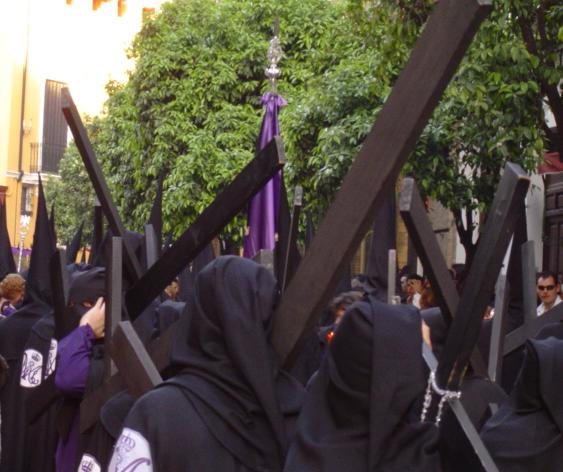 |
Earlier this week a news story took Social Media in Seville by storm. But it wasn’t about anything that had actually happened. Instead, it was the perfect example of Social Media picking up on a frighteningly misjudged, quote-worthy comment which was destined to become a bete noir for the speaker. This asunto encompassed politics, tradition, religion, and local pride and passion - a combustible combination.
Begoña Gutierrez, the Provincial Secretary of Podemos Seville, was speaking to El Mundo newspaper in an interview published on Monday. In describing how Podemos’ remit was to devolve more decision-making power to the people, the hapless civil servant-turned-politician suggested that, “If it came to a vote (on whether Semana Santa should be banned), the people would decide.” Semana Santa banned? Gasp! Horror! Outrage!
"Pregunta: Dígame por último si es verdad eso de que si Podemos gobierna prohibirá la Semana Santa.
Respuesta: En Podemos todo lo decidimos los ciudadanos y los ciudadanas. Si se llegara a plantear esa cuestión, serían ellos quienes lo decidirían.”
(Question El Mundo): Lastly, tell me if it's true that if Podemos was elected, you would ban Semana Santa.
(Answer Begoña Gutierrez, Podemos Sevilla): In Podemos, all the citizens make the decisions. If it came to a vote, it would be they who would decide.
The knives have been out for Podemos for some time with mainstream media and the other political parties, notably the two main players - the PSOE and PP - desperate to sling mud at this new party which was formed just a year ago and which came from nowhere to win five seats at the European elections in May last year.
With some unconventional views, Podemos is a far-left party which promises participative democracy, financial transparency, a monthly minimum salary for all, and debt restructuring. Some unfortunate comments about ETA and terrorism have not helped its cause. It's a grass-roots anti-establishment party which isn't about millionaire backers and high-profile campaigns - its European election campaign last year was crowd-funded. Corruption is one of the biggest concerns of the Spanish electorate, and Podemos is all about confronting the culture of back-handers head on.
Any opportunity to make the new party look bad is grabbed with both hands by the two principal parties, as well as many media channels. Unsurprisingly, considering that the political establishment is running scared - Podemos’ leader, an economics professor from Madrid called Pablo Iglesias who famously sports a ponytail, is favoured by 44% of the electorate as Spain's next prime minister compared to the other parties’ leaders at 32% (PSOE) and 23% (PP). The latest poll, on 11 January this year, gives Podemos an election-winning 28.2% of the vote.
The unfortunate Begoña handed her party's multiple detractors a loaded gun and said “Go on, shoot me.” Perhaps the 39-year-old mother of two, who is herself from Seville, is inexperienced in dealing with the media. Otherwise she would have known not to even suggest, albeit as an example of citizens' democratic participation, that Seville’s most famous event be banned.
Podemos is all about a return to genuine democracy in which decisions aren’t made by out-of-touch suits who have become rich through questionable business and financial dealings and loyalties, also known as conventional politicians, but by The People. So even if she was simply trying to illustrate a very important point, she chose the wrong way to do it.
Within hours, rumours were circling around the internet saying “Podemos wants to ban Semana Santa in Seville.” Sticky. You have to feel sorry for the poor woman. Begoña responded with some clarifying/backpedalling tweets, and El Mundo charted the storm, with some glee. So it seems that banning Seville's most popular religious festival is not in the party's manifesto after all.